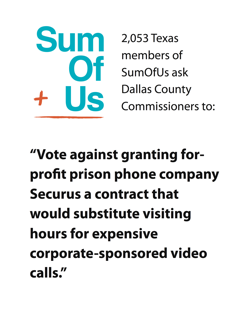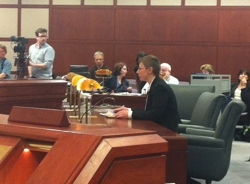Thank you CharitySub!
In March, we were honored to be one of the three charities chosen by CharitySub as one of three organizations addressing the prison epidemic. We report back.
by Peter Wagner, September 19, 2014

In March, we were honored to be one of the three charities chosen by CharitySub as one of three organizations addressing the prison epidemic.
CharitySub is an innovative new approach to online giving. CharitySub members pledge $5 a month, and each month CharitySub picks a new cause and identifies three non-profits making a difference on that cause. Each month, CharitySub members get to pick which of the three organizations receives their $5. Most recently, Charity Sub members have supported organizations addressing STEM education, wildlife welfare, beach conservation, drug free youth, and — this month’s topic — body image.
You can join today to support this month’s organizations and learn about other organizations doing great work in the future.
Thank you, Charity Sub members, for supporting our work. With your help, we won a big victory two weeks ago, convincing Dallas County Texas to reject a video visitation contract that was going to replace the usual visiting hours for families with expensive video visitation. This is the first time the public was able to stop one of these anti-family contracts, so we expect it will have a national effect. Thank you for making this victory for families possible.

 Please welcome our new Policy & Communications Associate, Bernadette Rabuy.
Please welcome our new Policy & Communications Associate, Bernadette Rabuy.




